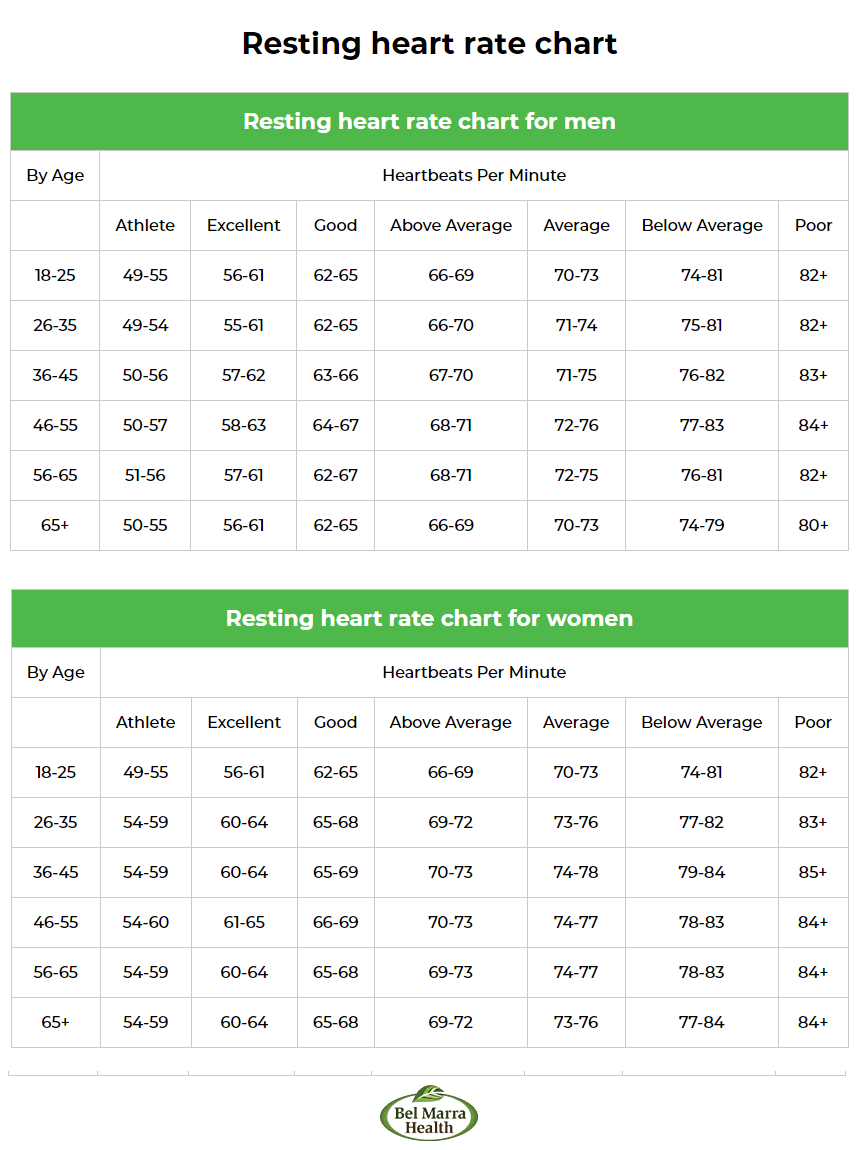

Heart rate and blood pressure responses during hypoxic cycles of a 3-week intermittent hypoxia breathing program in patients at risk for or with mild COPD. Faulhaber M, Gatterer H, Haider T, Linser T, Netzer N, Burtscher M.2022 ACC expert consensus decision pathway on cardiovascular sequelae of COVID-19 in adults: myocarditis and other myocardial involvement, post-acute sequelae of SARS-CoV-2 infection, and return to play: a report of the American College of Cardiology Solution. Gluckman TJ, Bhave NM, Allen LA, et al.Management of patients with palpitations: a position paper from the European Heart Rhythm Association.

The resting heart rate is greater than 100 beats a minute. For example: Tachycardia (tak-ih-KAHR-dee-uh) is a fast heart. Its caused by various factors, including underlying medical conditions or abnormal electrical impulses in. In general, heart arrhythmias are grouped by the speed of the heart rate. Tachycardia is when the heart rate exceeds 100 BPM. You can measure your heart rate by checking your pulse in your wrist or neck. A normal heart rate should be regular and between 60 and 100 beats a minute when you're resting. Raviele A, Giada F, Bergfeldt L, et al. A heart-healthy lifestyle can help prevent heart damage that can trigger certain heart arrhythmias. Atrial fibrillation is a heart condition that causes an irregular and often abnormally fast heart rate.The relationship between body temperature, heart rate and respiratory rate in children. Some people have no symptoms, but they may notice palpitations. Palpitations: Evaluation in the primary care setting. Tachycardia refers to a fast resting heart rate, usually over 100 beats per minute in adults. National Institute on Alcohol Abuse and Alcoholism.Alcohol consumption, cardiac biomarkers, and risk of atrial fibrillation and adverse outcomes. Csengeri D, Sprünker N, Di Castelnuovo A, et al.A high heart rate can also mean the heart muscle is weakened by a virus or some other problem that forces. Heart rates that are consistently above 100, even when the person is sitting quietly, can sometimes be caused by an abnormal heart rhythm. Is drinking alcohol part of a healthy lifestyle? In otherwise healthy people, a heart rate at rest should be less than100 beats per minute at rest. Evaluation and Management of Premature Ventricular Complexes. CRAVE: A closer look at coffee consumption and real-time atrial and ventricular ectopy. Electrocardiogram abnormalities of caffeine overdose. The Effect of Hydration on Urine Color Objectively Evaluated in CIE L*a*b* Color Space. Belasco R, Edwards T, Munoz AJ, Rayo V, Buono MJ.Centers for Disease Control and Prevention.Protect your heart and health during the 'dog days' of summer. Public knowledge of dehydration and fluid intake practices: variation by participants' characteristics. Shaheen NA, Alqahtani AA, Assiri H, Alkhodair R, Hussein MA.Philadelphia, Pa.: Wolters Kluwer Health Lippincott Williams & Wilkins 2018. In: ACSM's Guidelines for Exercise Testing and Prescription. Influence diagram of physiological and environmental factors affecting heart rate variability: An extended literature overview. When the heartbeat is too fast, too slow, or irregular, the heart may not be able to pump enough blood. Normal sinus rhythm and sinus arrhythmia. Know your target heart rates for exercise, losing weight and health.Cardiorespiratory responses to acute exercise. Doctors may consider a heart rate to be fast if it is over 100 beats per minute Trusted Source PubMed Central Highly respected database from the National. Consult your doctor if your resting heart rate is consistently above 100 beats a minute (tachycardia) or if you're not a trained athlete and your resting heart rate is below 60 beats a minute (bradycardia) - especially if you have other signs or symptoms, such as fainting, dizziness or shortness of breath. What is heart rate like in atrial fibrillation A standard resting heart rate is between 60 and 100 beats per minute (bpm). Body position (standing up or lying down, for example)Īlthough there's a wide range of normal, an unusually high or low heart rate may indicate an underlying problem.Having cardiovascular disease, high cholesterol or diabetes.

Keep in mind that many factors can influence heart rate, including: Multiply this number by four to calculate your beats per minute. When you feel your pulse, count the number of beats in 15 seconds. To check your pulse at your wrist, place two fingers between the bone and the tendon over your radial artery - which is located on the thumb side of your wrist. Place your index and third fingers on your neck to the side of your windpipe. To measure your heart rate, simply check your pulse.


 0 kommentar(er)
0 kommentar(er)
